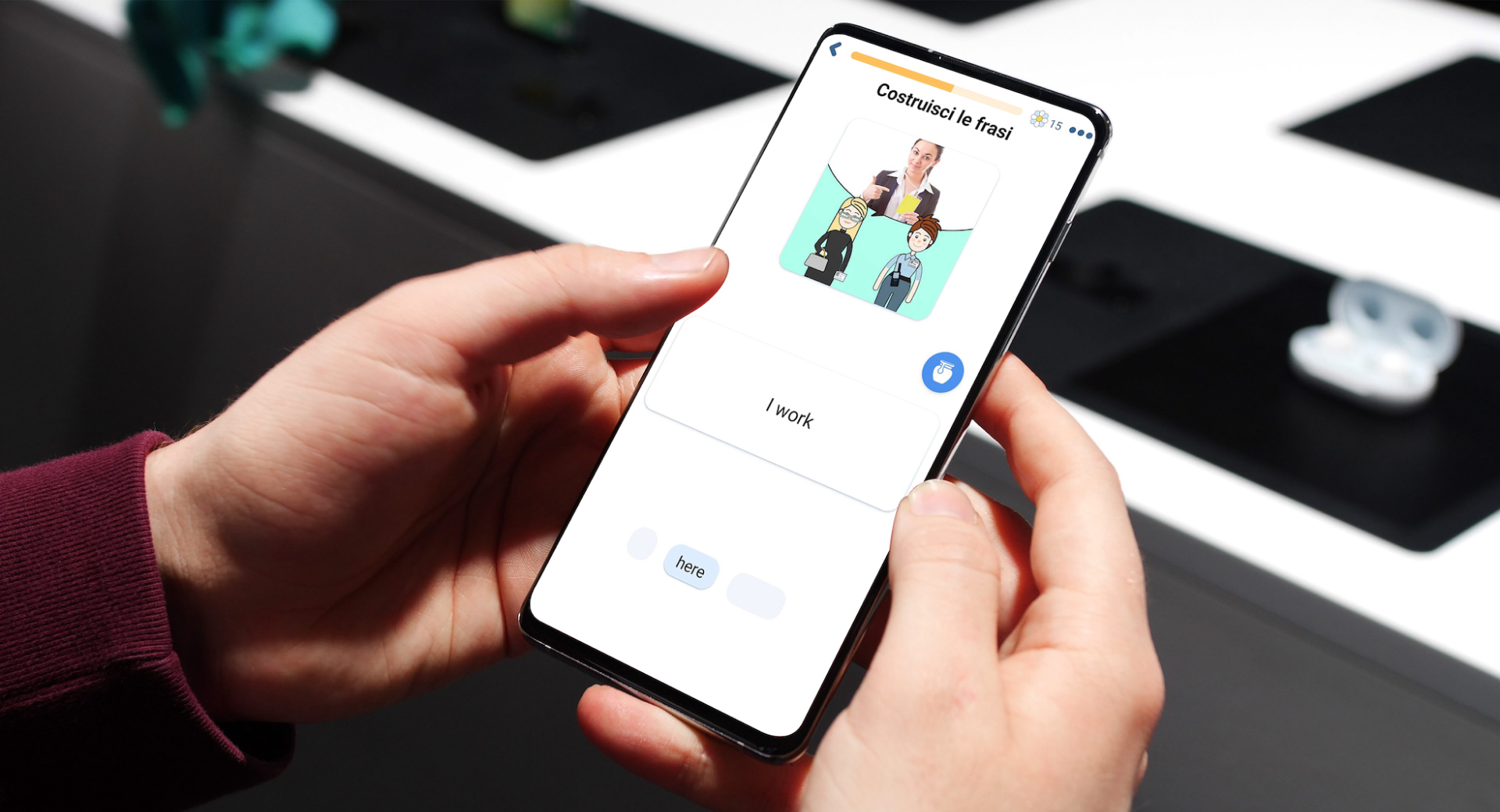Have you ever wondered if you could achieve bilingualism by learning French and Spanish at the same time? Or maybe you've dreamed of speaking more than 50 languages, like the polyglot Richard Simcott? Learning two languages at once is easier than you may think. All you need is a good reason and a plan. Are you ready to tackle learning two languages simultaneously? Let's go through some practical tips to make language-learning more fun and effective.
The Importance of Multiple Language Learning
Language acquisition, especially when learning multiple languages, is highly beneficial for your brain, career, and social life. Developing your language abilities is linked to improved creativity and problem-solving skills. See below some of the advantages polyglots enjoy.
Increased Cognitive Abilities
Language learning is linked to improved memory and multitasking abilities. Regularly training your brain with two languages or more enhances cognitive flexibility, keeping it younger and healthier for longer.
Learning two unrelated languages from different parts of the world forces your brain to rewire, creating new neural connections to understand unfamiliar concepts and rules. For example, mastering both Mandarin and Spanish simultaneously challenges the brain to navigate tonal nuances in Mandarin while mastering verb conjugations in Spanish, thus improving your cognitive abilities.
Cognitive exercise can delay age-related mental decline. Studies conducted on multilingual immigrants show that speaking more languages delays the onset of Alzheimer's Disease.
Improved Self-Esteem
Mastering one language boosts your self-esteem. What do you think achieving language proficiency in two languages simultaneously does? Of course, it doubles the effect! The discipline required and the sense of accomplishment following it reinforces your confidence. Sharing your language-learning achievements in social interactions attracts compliments and is an impressive conversation starter. Your efforts will definitely bring you the recognition you deserve.
Better Cultural Understanding
Learning a new language through cultural immersion broadens your worldview and positively impacts social interactions. Once you become more aware of social norms and linguistic nuances, you go beyond the traditional classroom language learning. For instance, in India, saying "thank you" is not common among close friends and relatives. That's why you may not hear it a lot, but you can still express gratitude, especially as a tourist. It's important not to treat it as lightly as in the US, as you risk coming across as insincere.
A deeper cultural understanding can positively impact your communication with people of various backgrounds and your career opportunities. Knowing the subtleties of social norms in different countries can help you avoid potential misunderstandings with the locals when traveling.
Cultural competence is highly valued as a key indicator of strong emotional intelligence. People who communicate well often enjoy better job opportunities and often have leadership roles. Better communication skills in several languages, plus a good cultural understanding, can positively impact your career, making you more competitive in the job market.
How to Learn More Than One Language

Acquiring a new language that is similar to your mother tongue is easier. So, if your native language is English, you will find a Germanic language (German, Norwegian, Swedish, etc.) or a Romance language (French, Spanish, Italian, etc.) more accessible due to their language families.
Language families radically different from your mother tongue will be more challenging. As an English speaker, you will find that studying Chinese and Arabic requires more time and effort. Once you develop language skills in a language from a certain family, you can easily learn more languages from the same group. For instance, Spanish gets much easier if you already know Italian.
Tip #1: Know Your Why
Keep in mind what your main motivation for language learning is. It will help you set goals, keep focused, and boost energy when learning vocabulary seems too hard of a task.
Your motivating factor will also influence the vocabulary you need to prioritize. For instance, everyday words and phrases are a priority if you're learning Spanish to connect with relatives. In contrast, learning French for business will shift focus on expressions for meetings, closing deals, or communicating with customers. That's how your why influences what you learn, helping you achieve your goal faster.
Tip #2: Learn Different Languages
What do you think is easier to learn - two somewhat similar languages or two from different language families? It turns out that taking up two similar languages can be confusing, at least when you tackle them simultaneously. So, the recommendation is to learn two languages from different families. Some examples are Korean and Finnish, French and Arabic. That way, you reduce the risk of mixing up similar grammatical patterns and vocabulary. As a result, you can progress faster in both languages.
Tip #3: Set Realistic Goals for Each Language
When learning two languages, adjust your expectations realistically. Consider your available time and how different the new language is from your mother tongue. Adjust your milestones depending on your calendar and the difficulty level of the new language. You can always adjust your goals. Start small and increase as your confidence builds up.
If it took a year to reach an intermediate level in one language, understand that learning two languages will require twice the time and effort. On the bright side, the more you practice learning new languages, the better you become at it.
Tip #4: Start with One Language
Even though learning more languages at a time is possible, starting with both at once is not recommended. Doing so may be overwhelming. Instead, experts suggest achieving a good conversational level in just one language before starting another. The tactic is widely used by polyglots.
Speak a new language with confidence!
Build fluency faster with FunEasyLearn — just 10 minutes a day is enough to make real progress.
Tip #5: Expose Yourself to Authentic Materials
One of the most effective language learning techniques is immersion. In simple terms, immersion is learning in the target country by interacting with the locals. If that's not possible, you can recreate a similar environment in the comfort of your home. Listen to songs in your target languages, watch movies, and read books or magazines.
The easiest route to effortless learning is watching videos on a topic you're passionate about. If you're into gardening, watch how native speakers describe their experience and talk about various plants. If you have a soft spot for cooking, follow chefs that speak your target language. Combining hobbies and language learning is a great way to expand your vocabulary and pick up on common phrases and expressions.
Tip #6: Leverage Comprehensive Input
Learning happens when you go slightly out of your comfort zone. That's exactly what the comprehensive input does. In a nutshell, you choose materials slightly over your language proficiency level. So, when you are confident with your current level, you can challenge yourself with videos for the next level. That way, you stimulate interest and progress in one or more languages. This goes hand in hand with the previous tip to expose yourself to authentic materials. Choose books, movies, and podcasts created by native speakers in your target languages.
Tip #7: Track Your Progress and Celebrate Milestones
Keeping an eye on your results is essential in language learning. Monitor your progress in each language separately to understand your strengths and areas that need improvement. Celebrate small achievements to stay motivated and committed to your language learning journey.
Tip #8: Keep Practicing the New Languages
Forgetting a language you've learned, called second-language attrition, is common. To prevent that, ensure you practice regularly, at least until you achieve an advanced level. Research shows that proficient learners are less likely to forget a second or third language. Keep your target languages active by playing vocabulary games, communicating with native speakers, and using authentic materials.
Tip #9: Learn Thematic Vocab Across Languages
What if you learn the same vocabulary in both languages? That's actually a great tactic. You can practice common business terms or family-related vocabulary in two languages simultaneously. Say you're learning greetings in German one day, and then you learn to say hello and goodbye in Korean the next day. This approach reinforces connections between languages and facilitates easier retention and recall of vocabulary across multiple languages.
FunEasyLearn - the Only App You Need to Learn Languages

Get FunEasyLearn for FREE to access language resources in all the languages you want to learn. Go for one, two, or multiple languages at once.
FunEasyLearn has a special offer for language enthusiasts planning to master more than one language as fluently as native speakers. Get the Premium Plan and enjoy the following benefits:
⭐ A one-time payment. Forget about monthly subscriptions, no price changes, just pay once and use forever.
⭐ Full access to ALL 34 language courses
⭐ FREE content updates. Benefit from the constant app updates at no additional cost. Get new features and new languages as a bonus!
⭐ ALL Premium Features Unlocked. Access all the suite of features across all levels. Create personalized favorite lists and share them with other premium members.
Improve your speaking skills with a bargain deal for all 34 languages.
Frequently Asked Questions
Can you learn multiple languages simultaneously?
Science says learning two or more languages at a time is absolutely realistic. The key is discipline, a solid learning program, and much practice. You don’t have to be a genius to embark on such a language-learning journey. Still, you do need to get enough rest and mental resources and consider language immersion programs to record the new information.
Is it harder to learn a second language or a third one?
Some people find language acquisition easier than others. Some have a natural talent for language learning. However, once you master a second language, the third one should be easier to tackle as you progress through different language proficiency levels.
How many languages can one person learn at once?
According to polyglots, your language learning capacity allows you to simultaneously learn up to 3 languages. Most polyglots can maintain up to 6 foreign languages active at an almost native level.
Is it good to learn more than one language at a time?
If you have a clear goal in mind and enough time to practice regularly, learning more than one language has multiple benefits. Your memory, multitasking skills, and attention will improve. On top of that, you will develop better communication skills, including in your native language.
Do polyglots have a higher IQ?
Studies have revealed that bilinguals and multilinguals typically have higher IQs than people who only speak one language.
How can I switch from one language to another without mixing them?
The secret to seamless language switching is to minimize translating the new words and vocabulary into your native tongue. Instead of thinking in your native language and then translating your ideas, try to think in the target language—keep a journal in which you write what happened during the day; use a native dictionary with explanations, not translations, and enrich your vocabulary with synonyms.
Are you ready to learn one or more languages? Start for FREE!











